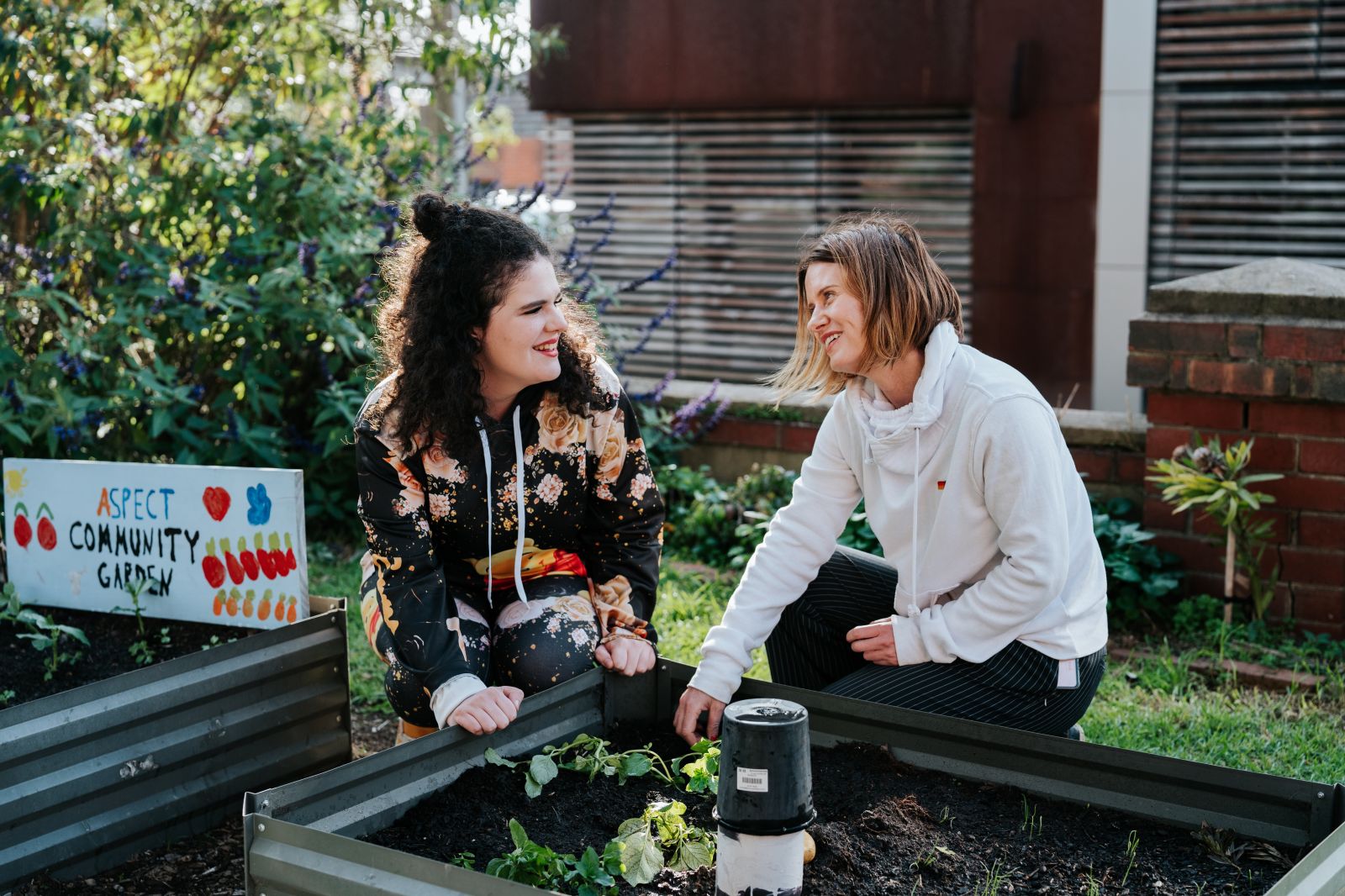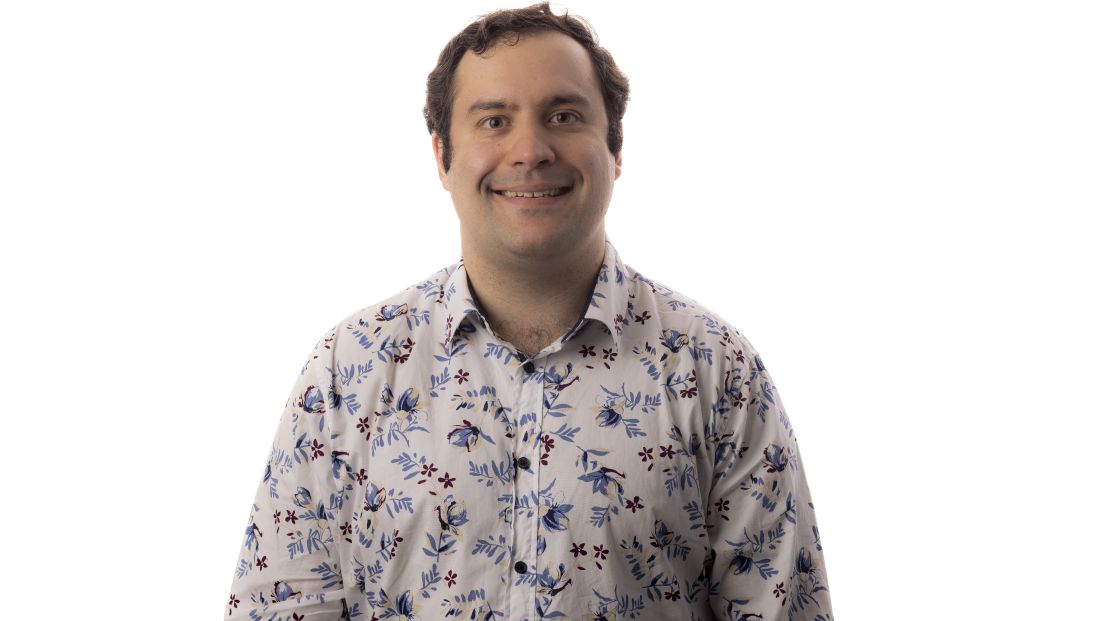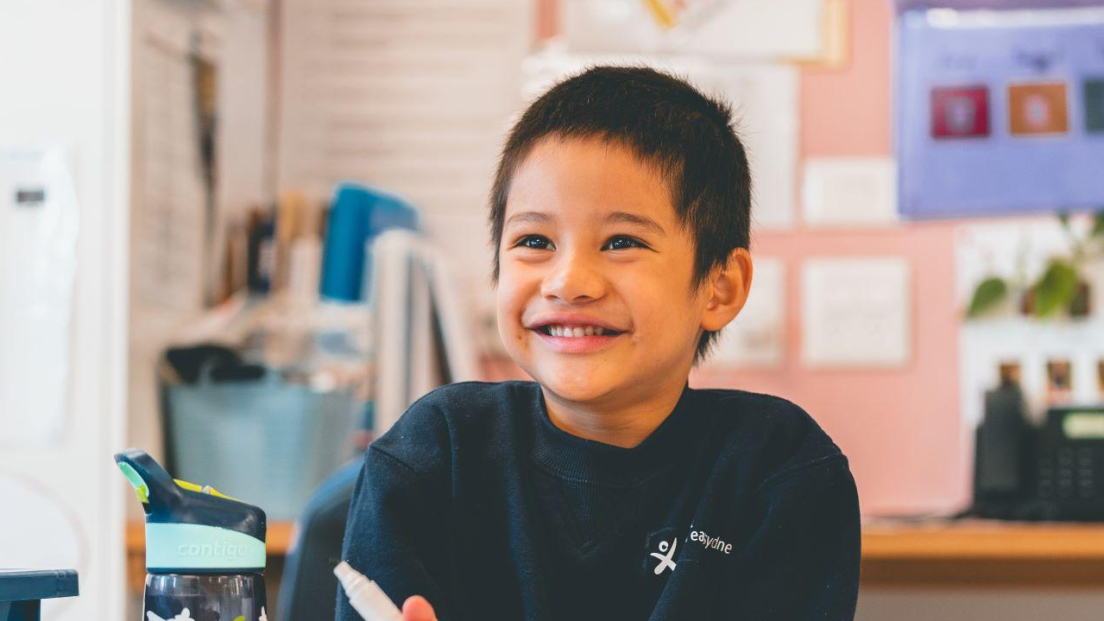A group of local volunteers from South Surrey Park in East Melbourne are fostering a love of gardening in Autistic adults, who are not only growing a green thumb, but benefiting from social interaction across generations.
Each month for the past five years, Autistic adults from Aspect’s Adult Community Services (ACS) centre in Hawthorn participate in the Flora and Fauna program with volunteers from Friends of South Surrey Park, who dedicate their own time to teaching planting, pruning and weeding skills along with how to identify garden species and varieties.
A major benefit of the program is the life skills garnered by Autistic adults, as they navigate public transport to attend the monthly gardening sessions.
Ursula Povey, volunteer at Friends of South Surrey Park, said it gives her so much pleasure to work with the adults from ACS and to see them being involved in our re-vegetation program.
“It is wonderful to be able to take part in restoring a lovely park and making it habitable for many native birds, animals, reptiles and insects. The participants know this and we share the joy of seeing things grow that they have planted. Being in nature can relieve stress, reduce anxiety and improve concentration for anyone who takes it up. It is therapeutic for us all, including our neurodivergent friends.
“It is wonderful to see the group taking such an interest in South Surrey Park and using their various skills as we work together. As a group we visit our planting sites and participants are pleased to see how their seedlings have grown. One eucalyptus planted by a participant is now taller than he is. He was thrilled to see that,” added Povey.
Christine Edwards, Regional Coordinator of Aspect ACS said the local community plays an important role in the lives of Autistic adults who attend the Hawthorn centre.
“The power of community is evident in the growth and development of the adults who attend our centre,” said Ms Edwards.
“We have worked with the Friends of South Surrey Park for five years and the Flora and Fauna program is an absolute highlight among our participants. Gardening is a highly sensory activity offering different colours, smells, sounds and textures, yet the environment and repetitive processes tend to have a calming effect.
“While the adults love getting their hands dirty with planting and creating garden beds, they are also learning important life skills including catching a tram and bus to attend and packing a day bag of essential items, which builds confidence and self-esteem.
“Collaborating and communicating with the volunteers and program leads also helps build social and communication skills, and we have noticed a vast improvement since the program began.
“What’s more, our adult participants love that they are contributing to an important cause in keeping our parks clean, safe and healthy,” added Ms Edwards.
The Aspect Flora and Fauna program also educates participants about conservation and land management and the notion of ‘Caring for Country’.
“Our participants have loved celebrating and learning about and indigenous perspectives and their leadership on the environment, plants, animals, insects, seeds and natural resources. We are practicing bush regeneration and helping to preserve native plants and restore patches of land to its original state, under the expert guidance of our volunteers,” said Ms Edwards.
The ‘Flora and Fauna’ program is one of many community activities coordinated by Aspect. Each program is specifically tailored to the participant’s strengths and interests in order to build capacity and support Autistic adults to reach their goals.




